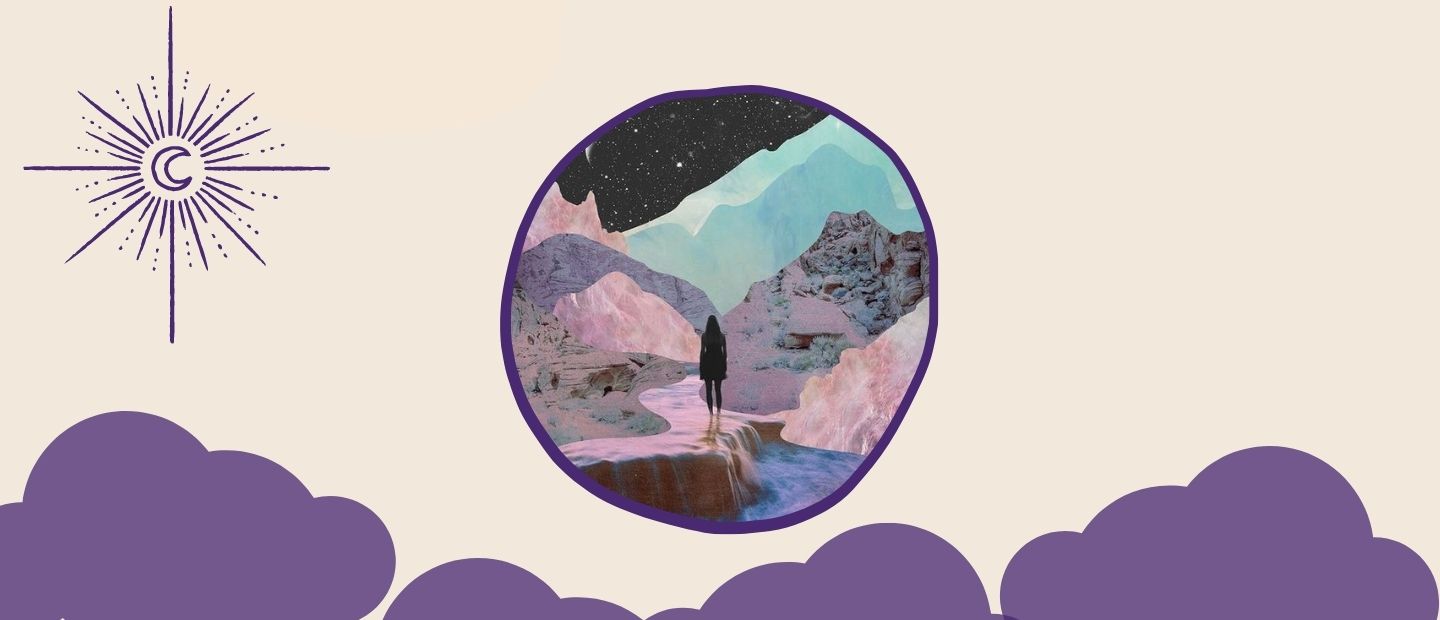People have always tried to decode their dreams, often finding mystical and premonitory meanings in them.
Dreams are not just a random creation of your brain to keep you busy at night. Whether you remember them or not, they are parts of you that express themselves. And often, they are actually a therapy that you apply to yourself.
The interpretation of dreams is a discipline with multiple facets that are sometimes complex but can be really captivating.
The Psychoanalytical Interpretation of Dreams
In psychoanalysis, it is said that when well interpreted, dreams help us to move forward. Therefore, understanding our dreams can help us to alleviate anxiety or treat depression.
⠀⠀⠀
Dreams have acquired great importance in understanding the origins of our disorders or blockages since the founders of psychoanalysis developed the science of dreams. In fact, Freud was the first to describe the rules according to which dreams bring into play repressed desires and anxieties.
Neurological Interpretation of Dreams
Neurologically speaking, a dream is a moment of emotion management by the brain. The brain processes information in the form of images. This allows it to store information and gain experience, regenerate the nervous system and regulate emotions.
What we usually remember when we wake up is called the "dream of emergence". It transmits a message from the unconscious to the conscious.
On the other hand, if you don't remember your dreams, it may be due to self-censorship: when the content is too disturbing or negative, you just "forget". It happens.
And on the contrary, a recurring dream can be the symbol of a blockage.
Often the characters in our dreams are projections of parts of ourselves. This reconnects us with facets of ourselves that we are not aware of.
Beware, however, a character can hide another one or be a composite.
How to Interpret a Dream?

Then you will have understood, understanding your dreams meaning is much more difficult than it seems. A dream does not reveal the future, nor good or bad omens, on the contrary, it is based on the dreamer's past and his desires.
What's more, dreams are not homogeneous. They are influenced by the stage of sleep and different physiological mechanisms.
The interpretation of a dream is specific to each person. It depends on the person's past and experience.
Contrary to what many seem to believe, there is no single answer or interpretation. It is not a divinatory art, we do not interpret dreams as we read the palm of our hand!
Dreams Meaning Dictionaries⠀⠀⠀⠀⠀⠀⠀⠀⠀
If you are interested in dream interpretation, there are lots of dictionaries like Tristan-Frédéric Moir's (available for free online).⠀⠀⠀⠀⠀⠀⠀⠀⠀⠀⠀⠀
It's exciting!
The Dream Notebook
You can already start on your own quite simply by creating a "dream notebook" that you keep at your bedside. When you wake up in the morning, you write down everything you remember about your dreams, every detail, every feeling, even if it's not very clear.
Then, considering each element individually, ask yourself the question: "What does this evoke for me, what would be the connection with my current life?" or "If this element were a part of me, what would it be?".
Finally, immerse yourself in these images and connections and take the time, if you can, to meditate on what it awakens in you.
Some Fairly Common Dreams Meanings
- Where you’re lost in a house: perhaps you have trouble giving a clear direction to your life, you are looking for an answer in empty rooms.
- You're naked: usually, it's when you feel vulnerable and unprepared or not up to the task, but sometimes it can also mean a sense of freedom and a new beginning.
- You're flying: a very positive dream. It means you're reaching your goals, you're accomplishing things that lead to success. Everything is open to you.
- You dream of death: this usually means the end of something, a new beginning.
- Water: links with movement, change. Without knowing if it's good or bad, but it will impact you emotionally.
- Drowning: links with an overflow of emotions in everyday life and the feeling of reaching the end of your rope.
- Dreaming about losing your teeth: fear of losing control or feeling helpless in a situation.
- You're late: this dream (which can be distressing) reflects an apprehension in the face of an ordeal or, more generally, in the face of life itself.
- You are running: this can express the ability to escape from danger, and therefore to take care of yourself. Or the propensity to run away from your responsibilities, from discussion, or from others. But running can also indicate an urgency to act, or conversely an overly impatient or reckless temperament.
Dreams in Confinement
And by the way, have you noticed that our dreams are a little crazier, more intense since the COVID confinement?
Probably because our subconscious will draw from somewhere else than our everyday life, our brain is not stimulated in the same way. A bit of a compensatory effect.
And stress also plays a big role, obviously, as emotions short-circuit our consciousness and hack into the usually restorative process of dreams and REM sleep.
Would you like to understand your dreams, to know how to interpret them?










